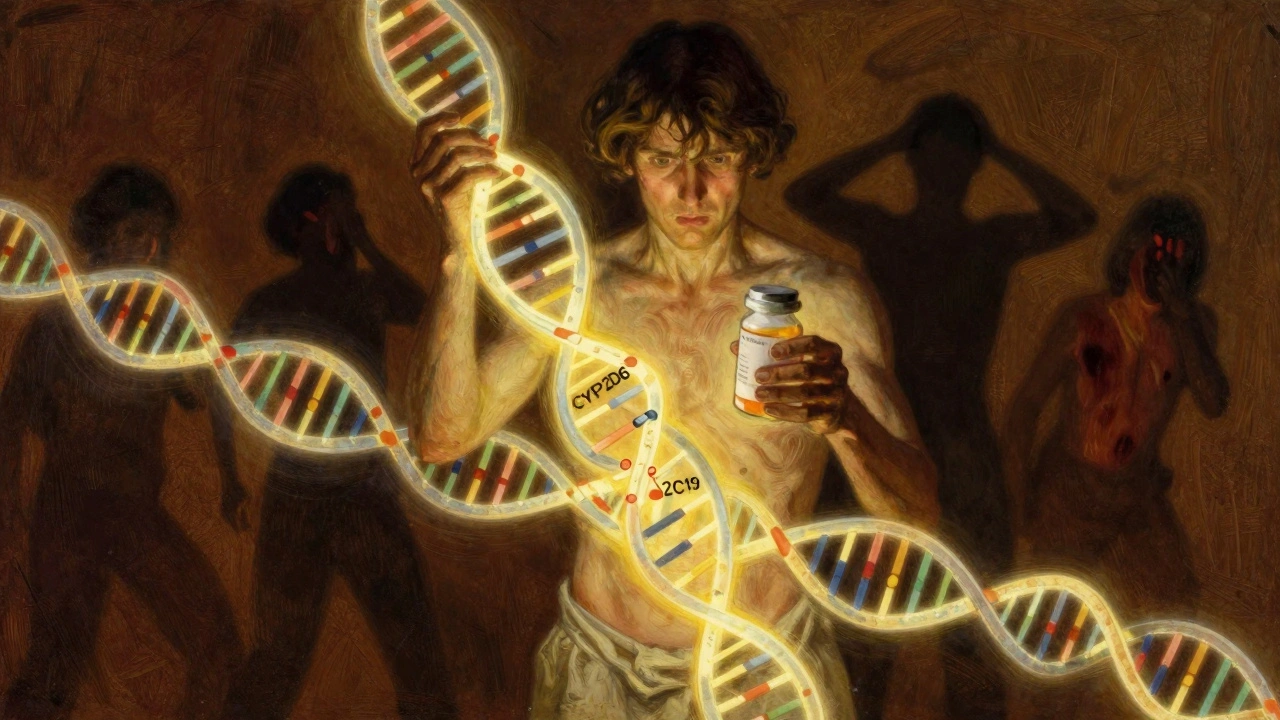Pharmacogenomics: How Your Genes Affect Medication Response
When you take a pill, your body doesn’t treat it the same way everyone else’s does. That’s because of pharmacogenomics, the study of how your genes affect how your body processes drugs. Also known as personalized medicine, it’s not science fiction—it’s already changing how doctors choose your meds. Two people with the same condition might get the same prescription, but one feels better while the other gets sick. That’s not bad luck. It’s your DNA.
Pharmacogenomics looks at how your genes control things like drug metabolism, how quickly your liver breaks down medications. Some people have a gene variant that makes them ultra-fast metabolizers—they clear drugs so fast the medicine doesn’t work. Others are slow metabolizers—they build up toxic levels even at normal doses. This affects everything from antidepressants to painkillers to blood thinners. For example, a common painkiller like codeine only works if your body converts it to morphine. If you have a certain gene variant, that conversion doesn’t happen, and you get no pain relief. Meanwhile, someone else might turn too much codeine into morphine and overdose.
It’s not just about what happens inside your body. Your genes also influence how your cells respond to drugs. A medication might bind perfectly to a receptor in one person but barely touch it in another. That’s why some people get severe side effects from drugs others tolerate fine. This isn’t about being "sensitive" or "tough." It’s biology. And it’s why genetic testing, a simple saliva or blood test that checks key drug-response genes is becoming more common in clinics. Doctors can now avoid trial-and-error prescribing. Instead of trying three different antidepressants before finding one that works, they can start with the one your genes say will help.
Pharmacogenomics doesn’t replace your doctor—it gives them better tools. It’s especially useful for drugs with narrow safety margins, like warfarin, clopidogrel, or certain cancer treatments. It also helps explain why some people don’t respond to standard treatments. If you’ve tried multiple meds for anxiety, depression, or chronic pain without success, your genes might hold the answer.
Right now, you won’t find pharmacogenomics on every prescription label. But it’s showing up in real-world results. Studies show that using genetic data to guide antidepressant choices can cut treatment time in half. In heart patients, matching blood thinners to genetic profiles reduces dangerous bleeding. Even in older adults taking five or more meds, gene-based dosing cuts hospital visits.
The posts below dig into the practical side of this. You’ll find real cases where medications affected weight, bone health, mood, and muscle function—not because of lifestyle, but because of genes. You’ll see how switching generics sometimes backfires, why certain antibiotics mess with birth control, and how protein-rich meals can block drug absorption. These aren’t random side effects. They’re clues. And pharmacogenomics is the key to understanding them.

Pharmacogenomics: How Genetic Testing Makes Medication Safer and More Effective
Pharmacogenomics uses your DNA to predict how you’ll respond to medications, reducing dangerous side effects and improving treatment success. Learn how genetic testing is making drugs safer and more effective.
Read more
Azathioprine and TPMT Testing: How Genetic Screening Prevents Life-Threatening Side Effects
TPMT testing before starting azathioprine can prevent life-threatening blood cell loss. Learn who needs it, how it works, and why blood tests still matter-even if your genes look fine.
Read more